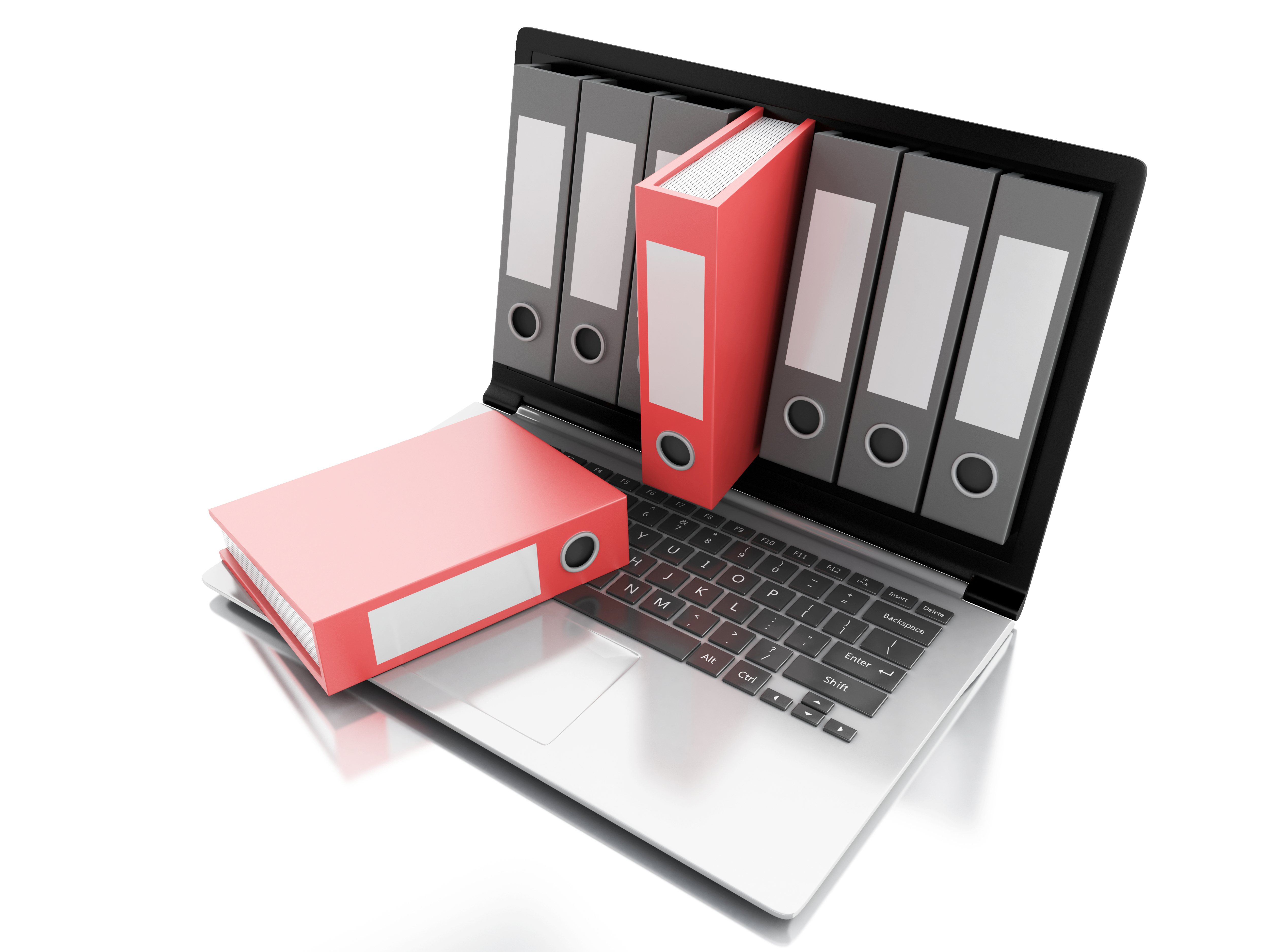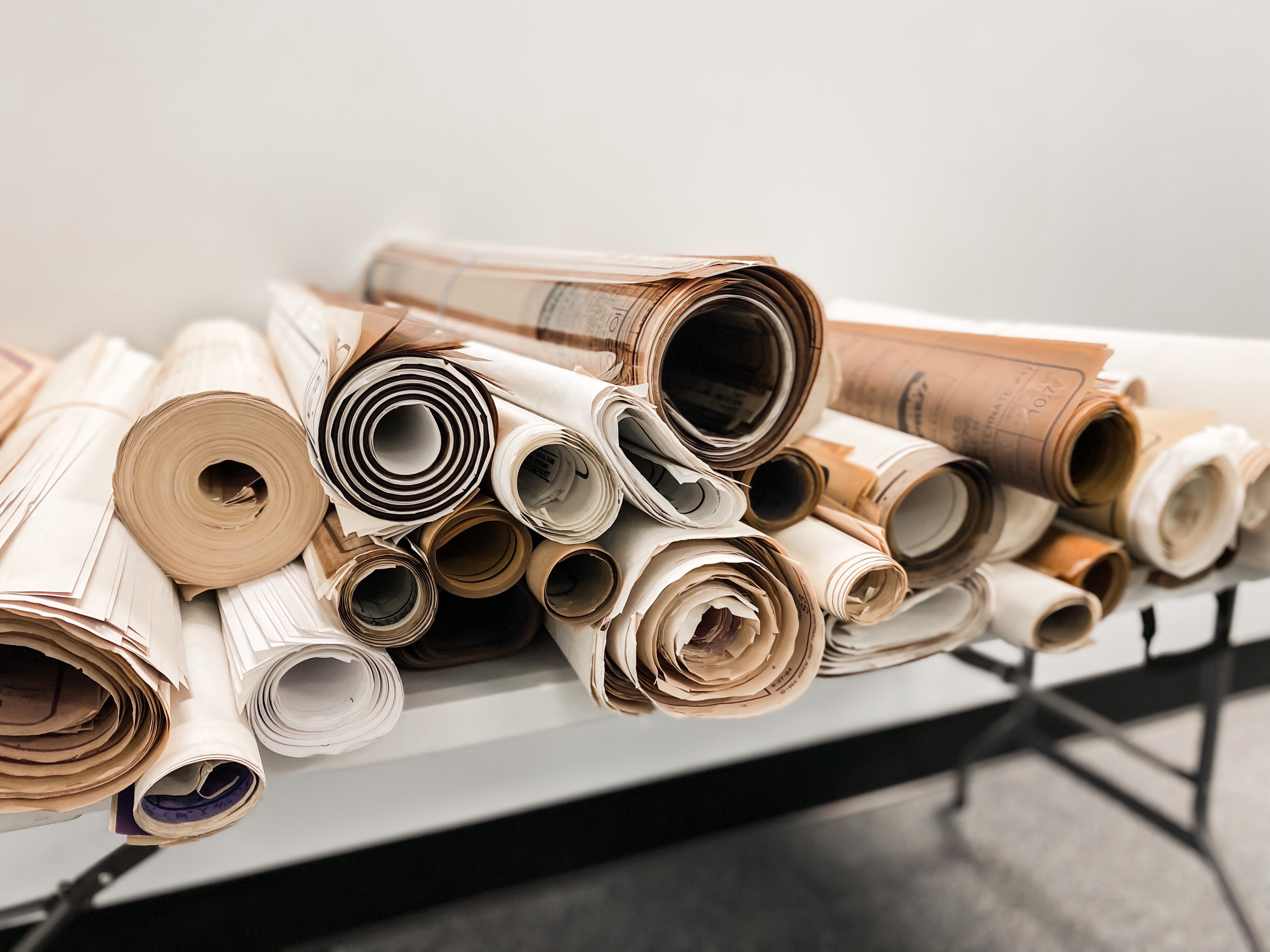As the world continues to progress into an increasingly digital space, it only makes sense to follow suit when it comes to your construction documents. When there is only one set of plans in existence, and that set is a hard copy, you are putting yourself at risk of lost information, time, and money. Aside from a myriad of other benefits, digital archiving is an easy way to ensure that your documents are never out of reach. Here are the top five reasons why you need to be digital archiving:
- Saved Time
- Easy Location and Organization
- Security
- Ease of Access
- Plans Are Never Lost

Saved Time
When a building is complete and the construction documents are sent to storage, they likely have found their way to the basement, or another dark room that is out of sight. Filed away in cabinets, the documents can become a nightmare to sort through. Even when working on current projects, sheets can easily be put back into the wrong place. When organized digitally, the task of sorting through these documents suddenly takes about a fraction of the time. Employees are no longer wasting hours of their day sorting through files and can reallocate their time to spend on more productive tasks.
Easy Location and Organization
When disaster strikes, no one wants to spend copious amounts of time sorting through endless pages of documents to locate one specific sheet. What happens if your building catches on fire and you need a complete set of plans for reference before you can begin the necessary renovations? If the documents have been digitized, that process is a simple search. If you are sorting through hard copy documents that have been dispersed across multiple drawers in a filing cabinet, or possibly were compromised during the destruction, good luck getting moved back into the building on time.
Security
When documents are saved digitally, they are kept secure. If security is a factor of concern in your building, you know the importance of not leaving your plans in a public space where they can be found by anyone. With this storage method, you now can have the peace of mind knowing that your information is safe and only authorized personnel can access it.
Ease of Access
Storing your documents online has plenty of benefits, with one of the most impactful ones being the ability to access your documents anywhere. The use of smartphones and tablets has revolutionized the way that the construction industry accesses information. You no longer have to be on-site to flip through hundreds of pages; now, you can pull the information you need, from wherever you need it. Furthermore, you are eliminating the need for paper usage, which reduces your spending when it comes to your documents.
Plans Are Never Lost
When documents are thrown into the basement after construction is complete, they are often forgotten, and keeping them secure is not always a top priority. If you are in a building that is 30 years old that has undergone multiple renovations, keeping an organized set of the documents on hand is not always a process that is diligently kept up. No matter the situation, losing or misplacing sheets from your only existing set of documents is something that is not worth the risk. Don’t gamble on damaged or lost sheets that you can never get back - put the files into a digital format.


Let Us Know What You Thought about this Post.
Put your Comment Below.